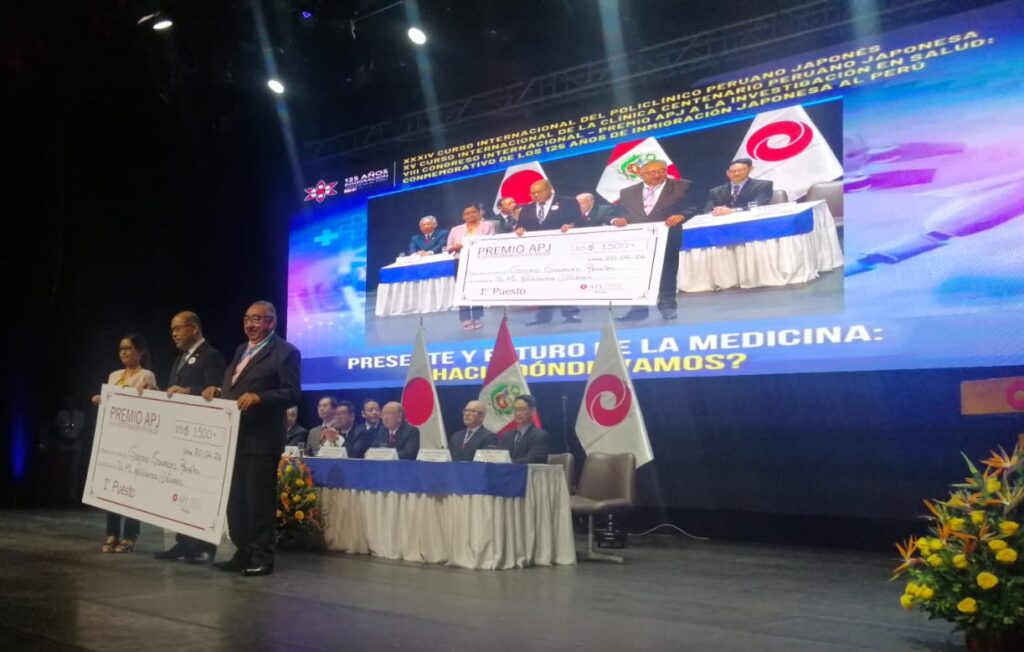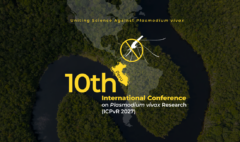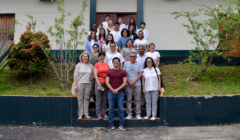Always leaders! Cayetano Heredia wins “Scientific Research Award” from the Peruvian Japanese Association
Published on:
Written by :

On Saturday, April 20, researchers from the Laboratory of Endocrinology and Reproduction (Faculty of Science and Engineering) and the Instituto de Investigaciones de la Altura (Institute of High Altitude Research) from our university were awarded the ‘Health Research Award” by the Asociación Peruano Japonesa (Peruvian Japanese Association (APJ, by its acronym in Spanish)).
The paper named ‘The excess of ferrous sulfate for 30 days in the diet of obese and non-obese male mice affects the liver, produces hyperglycemia and increases hematocrit: A risk factor for the development of diabetes mellitus” was authored by Ms. Jeannett Rivera, Dr. Manuel Gasco, and Dr. Gustavo Gonzales.
The study is part of the undergraduate thesis of nutritionist Jeannett Rivera, who developed an experimental analysis of a line of research that Dr. Gustavo F. Gonzales, coordinator of the Endocrinology and Reproduction Laboratory, has been carrying out for years and also is part of the program that fights against the excessive intake of iron in children and pregnant women, particularly those who are not anemic and who receive, by legal regulation of the state, iron supplementation.
The thesis was defended on April 1, 2024, and was approved with distinction as excellent.
About the research
The experimental study performed on laboratory mice shows that the excess iron in the diet and with obesity increases body weight, further perpetuating obesity, and affects liver histology, increasing vascular congestion and liver weight. It also increases hematocrit, indicating that iron enters the circulation despite inflammation.
Finally, the study shows that glycemia continues to be a risk factor for developing diabetes mellitus, as it increases significantly, being higher in obesity and with the elemental iron dose of 5 mg/Kg of body weight.
Iron is an essential element for life; however, its excess can be harmful. Avoiding substantial amounts will help prevent many cases of liver damage and the generation of diabetes mellitus and other complications.
APJ Award
For the eighth consecutive time, the APJ awarded the “Health Research Award,” which was created to encourage research in the field of Health Sciences, thus contributing to the improvement of the welfare of our population and professional development at the service of the country. This edition commemorated the 125th anniversary of the arrival of the first Japanese immigrants to our country aboard the ship Sakura Maru.
The APJ award is open to all registered medical researchers residing in Peru and students of related professions who are advised by a registered physician when they realize their research work.
Twenty-eight projects were presented to the contest by researchers from various institutions across the country. An independent jury with a prominent level of rigorousness evaluated the projects.









